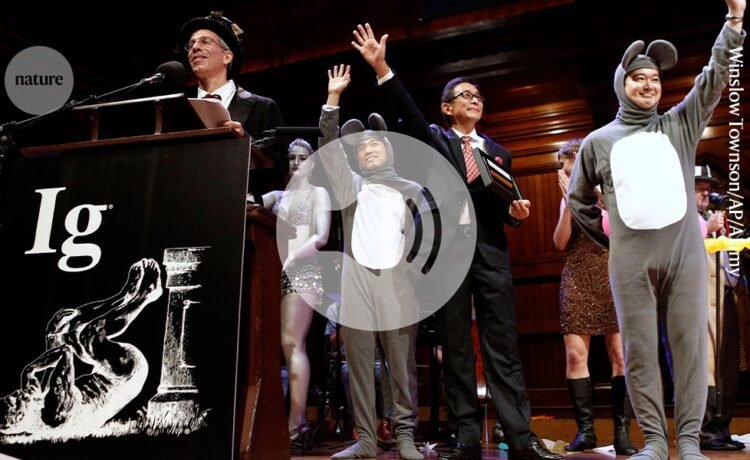Download the 27 December long read podcast
Marc Abrahams created the Ig Nobel prizes in 1991, after years of collecting examples of weird research that he included in the Journal of Irreproducible Results. The aim of these satirical awards is to honour achievements that “make people laugh, then think”.
While the initial response from the scientific community was mixed, last year the prize received more than 9,000 nominations. Several researchers who have won an ‘Ig’ say that it has improved their careers by helping them to reach wider audiences, and spend more time engaging with the public about their work.
This is an audio version of our Feature: How a silly science prize changed my career
Never miss an episode. Subscribe to the Nature Podcast on Apple Podcasts, Spotify YouTube Music or your favourite podcast app. An RSS feed for Nature Podcast is available too.
You Might Also Like
How AI slop is causing a crisis in computer science
AI slop is flooding computer science journals and conferences.Credit: Quality Stock/AlamyFifty-four seconds. That’s how long it took Raphael Wimmer to...
The ‘astounding’ rise of semaglutide — and what’s next for weight-loss drugs
First established as a treatment for diabetes, semaglutide’s popularity as a weight-loss drug has opened the door to new therapies.Credit:...
My mission to make life more user friendly for the disability community
Josh Miele explains the nuances of a tactile map of a Bay Area Rapid Transit station.Credit: Laurie UdeskyWorking scientist profilesThis...
US grant applicants surge at prestigious European research agency
Money could become harder to come by for European scientists if the overall European Research Council pot does not dramatically...










